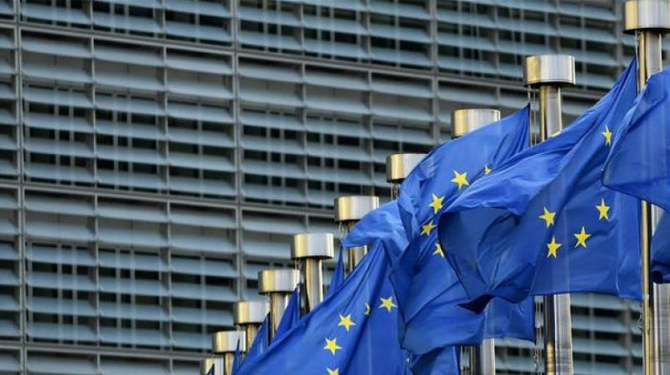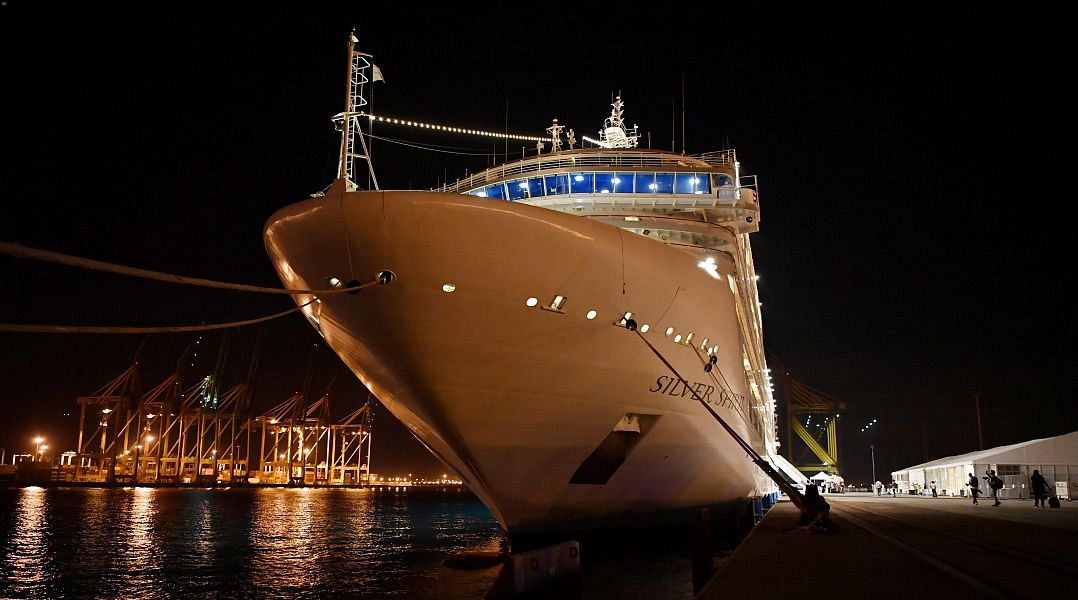
On Feb. 19, the EU is expected to roll out a new maritime security mission in the Red Sea. The bloc’s top diplomat, Josep Borrell, announced last Friday that the new naval presence is meant to protect commercial vessels from Houthi attacks.
The mission is going to join a crowded space of several such outfits in the region. While these well-intended initiatives proliferate, some have had limited capabilities and mandates. They need to be supplemented by political and diplomatic moves to be effective and long-lasting. In addition, better coordination with each other and with local, national and regionwide frameworks can multiply their usefulness.
Emphasizing its “purely defensive” nature, the new EU mission will be called Aspides, from an ancient Greek word meaning “shield,” according to Borrell, who also stated that “our purpose is not to conduct any kind of attack, but just to defend.” He added that the mission “will be deployed at sea and ... will not conduct any operation on land.” It is apparently meant to be in contrast to the US-led Operation Prosperity Guardian, which includes attacks against Houthi targets in Yemen.
There are already half a dozen other outfits in the region involved in different aspects of maritime security. The largest is the US-led Combined Maritime Forces, which is now composed of 41 countries, including the Gulf Cooperation Council states. It has five task forces set up to counter illicit nonstate actors on the high seas across approximately 8.2 million sq. km of international waters in the Arabian Gulf, Red Sea, Gulf of Aden and Arabian Sea.
Other maritime security outfits in the region include the US-led International Maritime Security Construct and Operation Prosperity Guardian, which was assembled in December in response to Houthi attacks on maritime shipping.
European countries have, individually and collectively, also established a number of missions addressing certain aspects of maritime security in the region, including Operation Atalanta and the European Maritime Awareness in the Strait of Hormuz. Aspides, the new EU mission that is due for launch later this month and is focused on the Red Sea, will join these European missions.
The Red Sea and the other areas of operation of these multiple maritime missions are among the most important waterways for world trade and, as such, their security is a global preoccupation. It is not an exaggeration to say that the Strait of Hormuz and Bab Al-Mandab Strait are the most important chokepoints for oil and natural gas trade. More than 27 million barrels of oil go through them daily, or about 28 percent of the world’s oil supply. Similarly, about 20 percent of the world’s liquefied natural gas goes through the Strait of Hormuz and 8 percent goes through Bab Al-Mandab.
Threats to international shipping in these waterways can have catastrophic effects on energy markets and economies around the world. But as Borrell said at the third EU Indo-Pacific Ministerial Forum in Brussels last week: “Disruptions to freedom of navigation have consequences that go beyond economic losses. It is not just a matter of some days more or some dollars more; it is about peace and stability.” The breakdown in maritime law and order adds to the volatility of this region.
Since its founding in 1981, the GCC has developed its naval and coast guard capabilities. It has integrated its maritime security efforts through the Bahrain-based GCC Center for Naval Operations Coordination and the Riyadh-based GCC Unified Military Command.
It is important to take a longer-term view to secure freedom of navigation in the Red Sea and Gulf of Aden.
Dr. Abdel Aziz Aluwaisheg
According to the Law of the Sea, ensuring freedom of navigation in international waters and straits is a shared responsibility delineated in international conventions. The GCC countries are all Combined Maritime Forces members and, at times, command its various task forces. The GCC-US Maritime Security Working Group, set up in 2015, coordinates maritime security cooperation and similar bodies coordinate with other partners at the collective level and with member states individually.
Last month, the EU and GCC held their first security dialogue with the aim of coordinating their bloc-to-bloc security efforts, including maritime security. The decision to engage was made long before the recent threats in the Red Sea, but they have added a sense of urgency to this task.
Military personnel have been doing a fair job going about the tasks assigned to them in these task forces, coalitions and individual operations with overlapping geographical and operational mandates. However, the proliferation of these outfits has raised the need for closer coordination among them, but also with the political processes taking place and international instruments adopted in recent years.
For example, the Houthi attacks on international shipping should not be seen in isolation from the group’s domestic agenda of controlling Yemen’s destiny. The Houthis’ posturing also chimes with Iran’s taking advantage of the war on Gaza to widen its sphere of influence regionally, through what it calls “the resistance axis.” As such, maritime security efforts should be coordinated with the UN-led peace process in Yemen and peace efforts in the Israel-Palestinian conflict, as well as with China’s diplomacy regarding both the Saudi-Iran deal and its efforts to persuade Iran to rein in the Houthis.
Next, it is important to take a longer-term view to secure freedom of navigation in the Red Sea and Gulf of Aden, especially the Bab Al-Mandab Strait. The main reason the Houthis have a growing capability to threaten shipping is the failure to enforce the arms embargo against them that was put in place in 2015 through UN Security Council Resolution 2216. This was adopted under Chapter VII of the UN Charter, meaning that both military and nonmilitary actions are authorized to enforce the embargo.
Subsequently, the UN has established a number of monitoring mechanisms, but their enforcement is being circumvented by Houthi actions that limit the ability of the global organization’s staff to carry out their tasks. The lax enforcement of the arms embargo means that the Houthis will continue to receive arms, including anti-shipping, cruise and ballistic missiles and missile parts, which will allow them to continue threatening maritime trade.
The danger of sea mines laid by the Houthis should also be addressed, as they drift toward international shipping lanes. There have been multiple incidents of mines hitting passing ships, some resulting in fatalities when they hit smaller boats. Pro-government forces have frequently discovered and disabled networks of naval mines, but the task of clearing them requires international cooperation to safeguard shipping.
Global actors partnering with the internationally recognized government of Yemen can improve maritime operations. Augmenting its coast guard capabilities through training and joint exercises would be useful, as would helping with the monitoring of suspicious movements, on land and at sea, which could threaten shipping.
As maritime security efforts multiply in the region, there is a need for better coordination and division of labor among them, especially as some are too small to act alone. Cooperation with local, national and regionwide frameworks can also multiply their usefulness.
Most of all, political coherence is essential. Military moves need to coalesce with the political and diplomatic processes that are in place in order to be effective in the long run.
• Dr. Abdel Aziz Aluwaisheg is the Gulf Cooperation Council assistant secretary-general for political affairs and negotiation. The views expressed here are personal and do not necessarily represent the GCC.
X: @abuhamad1












